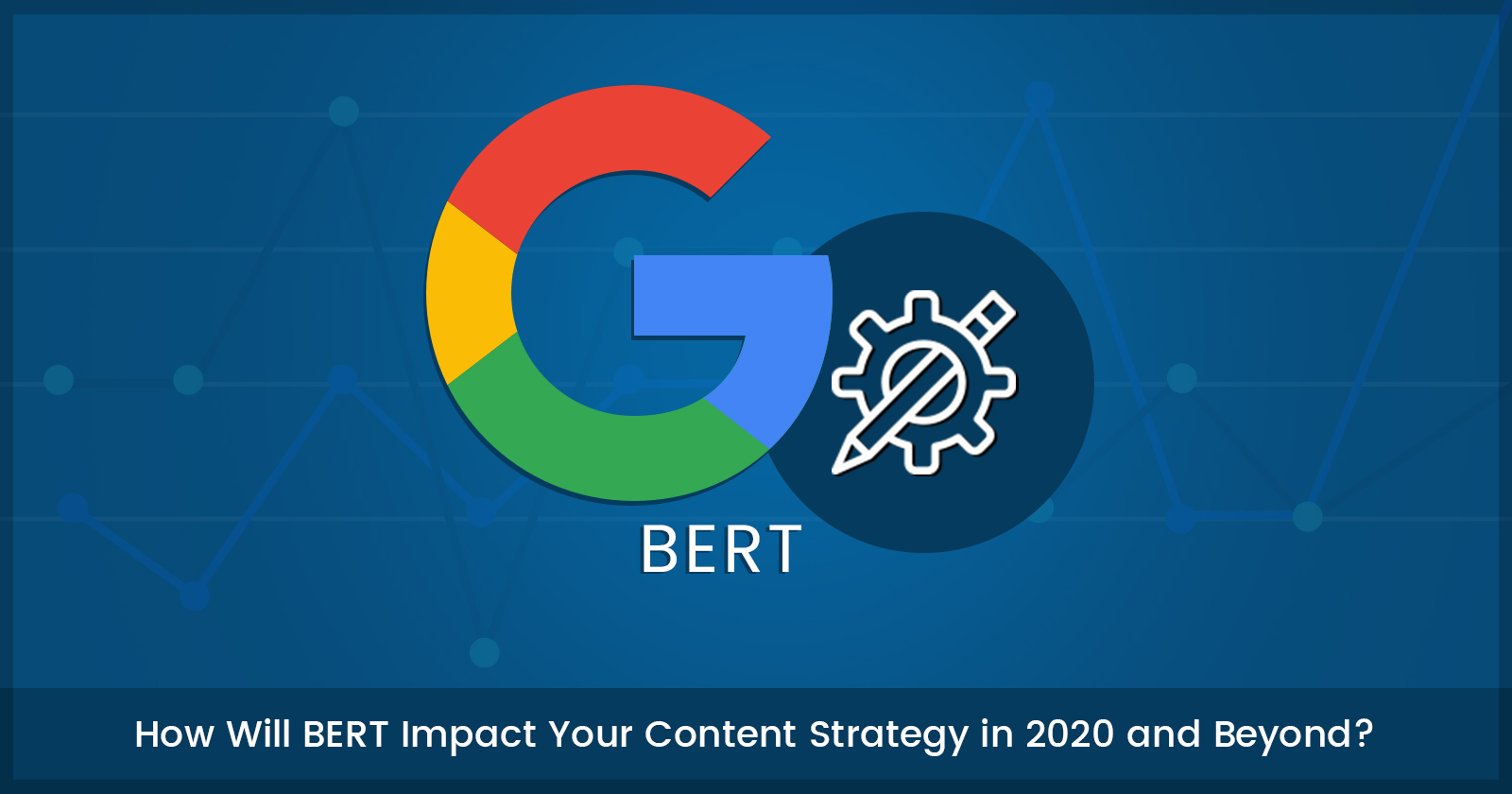BERT is said to be among the biggest Google updates of the year – affecting roughly 10% of all search queries.
BERT – which stands for Bidirectional Encoder Representations from Transformers – was carried out to help Google better understand natural language processing.
Here’s a fantastic example of BERT in action from Google:
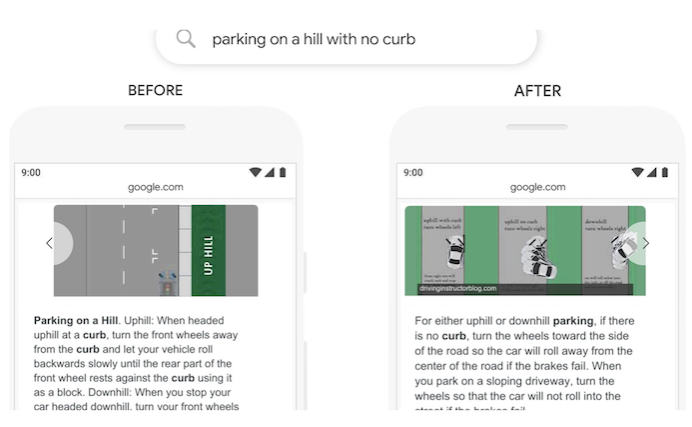
As you can see, the “AFTER” results are much closer tied to the user intent of the query.
But what does this mean for your SEO and content strategy?
Major algorithm updates like this generally send SEO professionals into an uproar about how to optimize – chock full of tall tales and misinformation.
Google’s mysterious algorithms are on a never-ending quest to better understand what exactly searchers are looking for.
Following most big updates, we hear the Google insiders telling us the same piece of advice, along the lines of:
“This is a major update. You don’t need to do/change anything. Just keep creating high-quality content and keep the user in mind.”
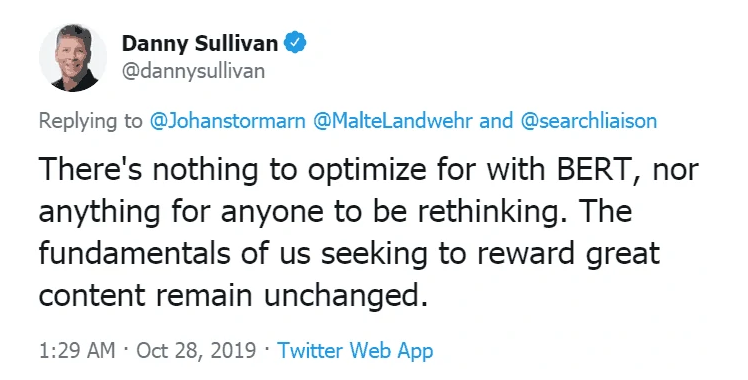
Now, it’s important to note that BERT won’t have a monumental impact on your SEO strategy or content marketing metrics.
Google’s BERT update is simply a big step forward in Google’s quest to think more like/better understand humans.
However, there are a few key tidbits and observations from the BERT update that you should take into consideration.
Let’s go over some of the big ones.
1. Informational Queries Take the Spotlight with BERT
A lot of what we are seeing so far is that BERT is primarily impacting search queries that fall near the top-of-the-funnel – or informational queries/questions.
Why is this?
Informational queries tend to have much more ambiguity attached to them – in comparison to navigational or transactional queries.
We believe a big part of the BERT update is deciphering this ambiguity to provide more direct answers.
For example, let’s take it to Google:
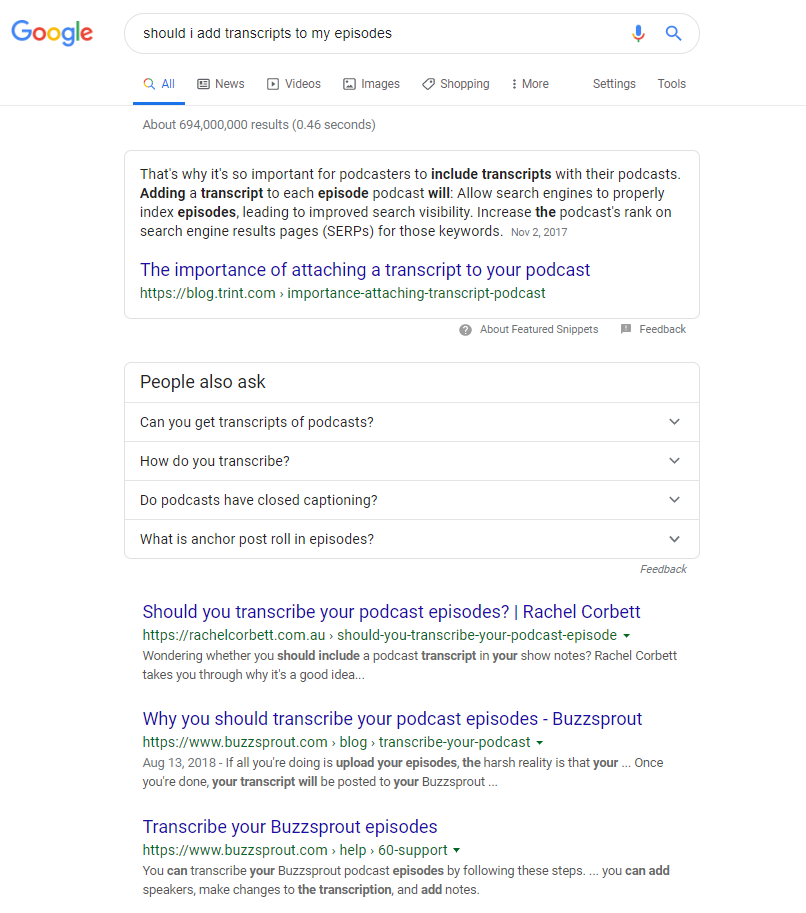
Even though I didn’t specify that I was talking about transcribing podcast episodes, Google interpreted this informational query as such. This is done through a tactic called masking.
Because BERT is a bidirectional model, it examines the words before and after the missing word to help decipher the context. It probably looked at the words “transcripts” and “episodes” to figure out I was talking about podcasts.
From here, it served me a bunch of content related to transcribing podcasts. More importantly, the content is all about why it’s so important.
So, what does this mean?
2. Fortune Favors Laser-Focused Answers
The shift to focusing on long-tail keywords and questions is nothing new.
The BERT update appears to be another step in this direction. However, it’s not so much about optimizing content for keyword density; it’s more about providing direct answers to questions and informational queries.
If we look back at the question, “should I add transcripts to my [podcast] episodes?” the featured snippet tells me yes because it helps search engines index the audio content – and subsequently rank it.
So how can you abide by this in your SEO and content plan?
The name of the game here is:
- Building content around specific questions/queries.
- Providing laser-focused answers (nothing new).
Think about it.
When you want a specific answer, you probably don’t want to sift through a huge piece of content to find what you’re looking for.
You want a super-focused piece of content that provides a direct answer.
For instance, say you are writing a comprehensive piece of content about kitchen remodeling.
Within the content, you might have a section about cabinets – in addition to sections about trim, countertops, floors, hardware, etc.
Chances are, even if your content provides the answer, it might be difficult to get this piece ranked for cabinet-specific questions like:
- How much do kitchen cabinets cost? – 140 searches/month.
- What kitchen cabinets are best? – 70 searches/month.
In this scenario, you are probably better off creating two separate posts that answer each of these questions.
Again, this concept is nothing new to the SEO world. It seems as though BERT is just pushing it further.
3. Longer Content Might Not Always Be Better
It can be easy to get caught up in general statistics.
The notion that longer content is generally better is becoming more of a myth with every update.
Let’s Google the question, “How does the sharing economy work?”
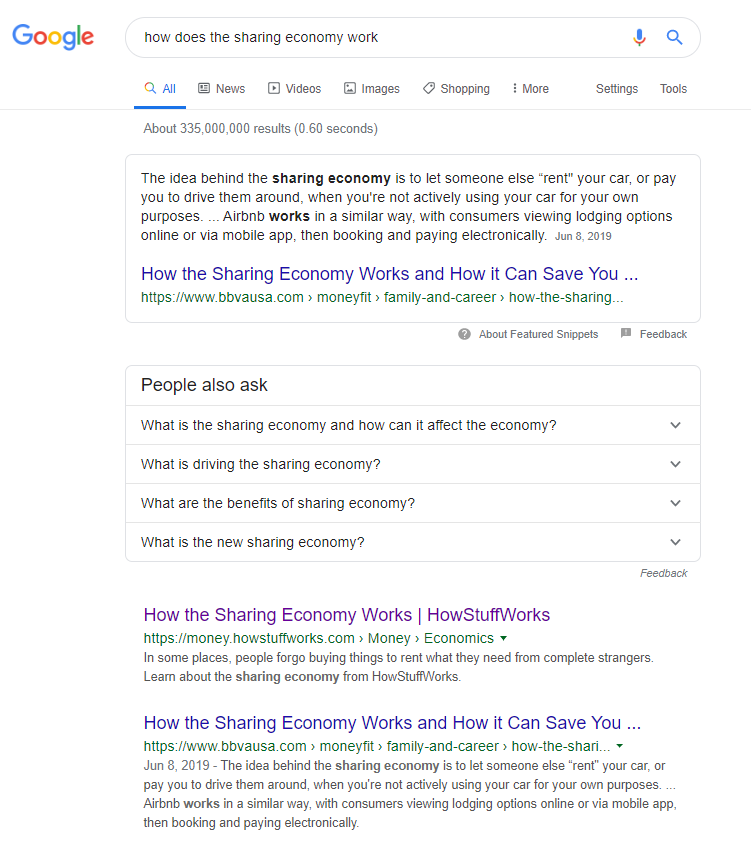
The article that made the 1 position (below the featured snippet) is only 411 words.
Now, we can’t say that creating shorter, more concise content is an absolute fact in SEO that applies across the board – it’s all going to depend on how specific the query is.
For broad queries like “how does SEO work” or “how to create a content marketing strategy” – longer, more thorough content is going to be the way to go.
On the other hand, queries like: “what are keywords” or “what is a do-follow link” won’t require a novel to explain.
A good takeaway from this is that ranking highly for super focused informational queries comes down to how well you answer the question – whether it be in a few hundred words or a few thousand.
The trick is providing the content that gives the searcher an efficient, yet solid answer – a task that’s easier said than done!
Wrapping Up: Stick to Google’s Classic Words of Wisdom
Google’s age-old advice, “create high quality content with the user in mind,” remains the focus of SEO.
If you are searching for ways to fine-tune your strategy around the BERT update, abiding by these classic words of wisdom should remain your primary game plan.
There’s a reason why SEO pros across the board were warning people to be cautious of “BERT optimization” content – both before and after the update happened.
To continue beating the dead horse – if creating awesome content that answers your target users’ pressing questions is a priority of yours, you don’t need to do anything to “optimize” for BERT.
More Resources:
- Google BERT Update – What it Means
- BERT Explained: What You Need to Know About Google’s New Algorithm
- Google BERT Misinformation Challenged
Image Credits
Featured Image: Created by author, November 2019
In-Post Image #1: Google
All screenshots taken by author, November 2019

